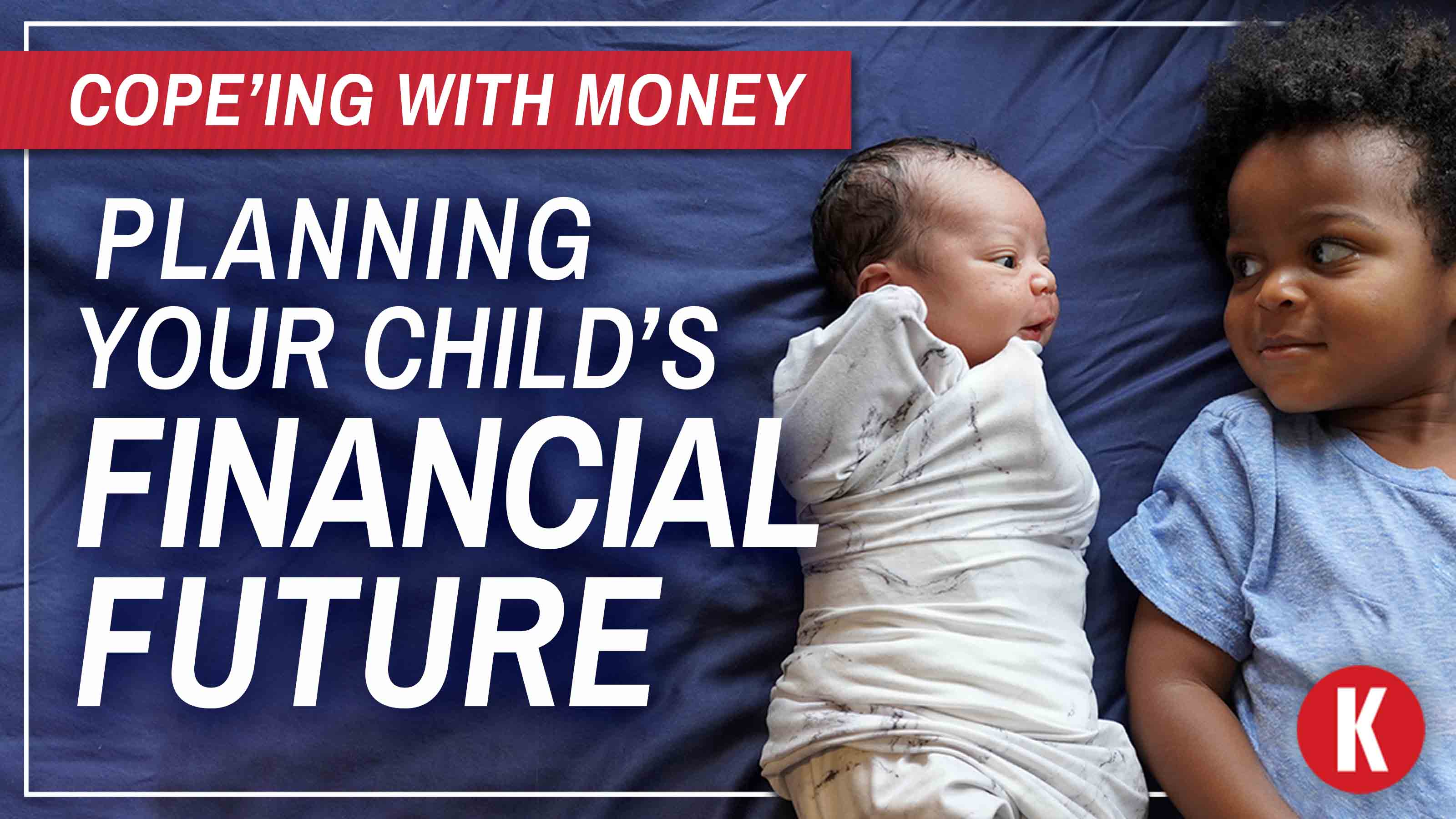The Value of Summer Jobs for Teens
Teenagers still have time to get summer jobs, and they might even learn a thing or two about managing money along the way.

Profit and prosper with the best of Kiplinger's advice on investing, taxes, retirement, personal finance and much more. Delivered daily. Enter your email in the box and click Sign Me Up.
You are now subscribed
Your newsletter sign-up was successful
Want to add more newsletters?

Delivered daily
Kiplinger Today
Profit and prosper with the best of Kiplinger's advice on investing, taxes, retirement, personal finance and much more delivered daily. Smart money moves start here.

Sent five days a week
Kiplinger A Step Ahead
Get practical help to make better financial decisions in your everyday life, from spending to savings on top deals.

Delivered daily
Kiplinger Closing Bell
Get today's biggest financial and investing headlines delivered to your inbox every day the U.S. stock market is open.

Sent twice a week
Kiplinger Adviser Intel
Financial pros across the country share best practices and fresh tactics to preserve and grow your wealth.

Delivered weekly
Kiplinger Tax Tips
Trim your federal and state tax bills with practical tax-planning and tax-cutting strategies.

Sent twice a week
Kiplinger Retirement Tips
Your twice-a-week guide to planning and enjoying a financially secure and richly rewarding retirement

Sent bimonthly.
Kiplinger Adviser Angle
Insights for advisers, wealth managers and other financial professionals.

Sent twice a week
Kiplinger Investing Weekly
Your twice-a-week roundup of promising stocks, funds, companies and industries you should consider, ones you should avoid, and why.

Sent weekly for six weeks
Kiplinger Invest for Retirement
Your step-by-step six-part series on how to invest for retirement, from devising a successful strategy to exactly which investments to choose.
There’s good news for teens about summer jobs: It’s not too late to get one. Although many positions have been filled, turnover is often high among teenage workers, says John Challenger, CEO of Challenger, Gray & Christmas, the outplacement firm. “Retailers, restaurants, amusement parks and the like may continue hiring throughout the summer to replace people who quit or were let go for whatever reason,” says Challenger. Look for opportunities to sub for workers who may be going on vacation, and don’t be afraid to return to employers who have already turned you down.
The extra effort could pay off, not only with cash in your pocket but also in the experience of earning money at a real job and learning how to manage it. In recent years, jobs seems to have become a four-letter word with many teens. Challenger points out that the labor-force participation rate among 16-to-19-year-olds has been declining since the late 1970s.
That doesn’t necessarily mean that kids are spending their summers lounging by the pool. A survey of teens by Junior Achievement found that among those who don’t plan to get a job this summer, 27% said they had too many other activities scheduled and 26% said they’d be away at summer camp or elsewhere.
From just $107.88 $24.99 for Kiplinger Personal Finance
Become a smarter, better informed investor. Subscribe from just $107.88 $24.99, plus get up to 4 Special Issues

Sign up for Kiplinger’s Free Newsletters
Profit and prosper with the best of expert advice on investing, taxes, retirement, personal finance and more - straight to your e-mail.
Profit and prosper with the best of expert advice - straight to your e-mail.
But as I’ve written before, teens are missing out on valuable life lessons by not holding down paid employment. Showing up on time, taking responsibility, and getting along with co-workers and supervisors are all critical skills—and so is knowing how to find a job in the first place. Social media and online job sites are a great place to start. But even today, nothing beats personal contact.
Face to face. The personal touch paid off big-time not once but twice for Nate Reistetter, the 15-year-old son of my Kiplinger colleague Stacie Harrison. Nate landed a temporary stint at a science camp on the strength of his older brother, Ben, 17, who has been a popular counselor at the camp for three summers. “As soon as Nate said he was Ben’s brother, he was in,” says Stacie.
After that gig ended, Nate started looking for a new job online and saw that Baskin-Robbins was hiring. He set up an in-person interview, which went well. When he didn’t hear anything for a week, he called again and this time spoke to the manager, who brought him in for another interview and hired him on the spot. Nate makes $9.50 an hour plus tips, and he’s thrilled to be scooping ice cream and making waffle cones. “He’s had volunteer positions before, but he says it feels really good to work at a job and be paid,” says Stacie.
Earning an income also gives Nate some golden opportunities to learn to manage money:
-- Pay taxes. Right off the bat, Nate will learn that even 15-year-olds have money withheld for income taxes, which he’ll probably get back as a refund, and for Social Security and Medicare taxes, which aren’t refundable. See What Kids With Summer Jobs Need to Know About Taxes for tips on how to fill out the forms.
-- Set up a checking account, and have his pay deposited directly, if that’s an option. Those are basic moves that have a big payoff but that kids don’t necessarily think of on their own.
The America Saves campaign, managed by the Consumer Federation of America, conducted focus groups with low- and moderate-income teenagers who participated in its First-Time Workers program to gauge their attitudes toward spending and saving. The group found that although the teens knew it was important to save, they didn’t know how, such as by contributing a portion of their pay automatically to a savings account. Among the teenagers, the most successful savers had two accounts, one for spending and one for saving.
-- Contribute to a Roth IRA. Because Nate will have earned income from a job, he’ll also be eligible to save for retirement in a Roth IRA. He can contribute up to the amount of his annual earnings, with a maximum of $5,500. And he doesn’t have to use his own money; parents and grandparents can give him the funds.
-- Keep up the good work. For Nate, the lessons don’t have to end with the summer. He’s already talking about working part-time during the school year.
Profit and prosper with the best of Kiplinger's advice on investing, taxes, retirement, personal finance and much more. Delivered daily. Enter your email in the box and click Sign Me Up.

Janet Bodnar is editor-at-large of Kiplinger's Personal Finance, a position she assumed after retiring as editor of the magazine after eight years at the helm. She is a nationally recognized expert on the subjects of women and money, children's and family finances, and financial literacy. She is the author of two books, Money Smart Women and Raising Money Smart Kids. As editor-at-large, she writes two popular columns for Kiplinger, "Money Smart Women" and "Living in Retirement." Bodnar is a graduate of St. Bonaventure University and is a member of its Board of Trustees. She received her master's degree from Columbia University, where she was also a Knight-Bagehot Fellow in Business and Economics Journalism.
-
 Here’s How to Stream the Super Bowl for Less
Here’s How to Stream the Super Bowl for LessWe'll show you the least expensive ways to stream football's biggest event.
-
 The Cost of Leaving Your Money in a Low-Rate Account
The Cost of Leaving Your Money in a Low-Rate AccountWhy parking your cash in low-yield accounts could be costing you, and smarter alternatives that preserve liquidity while boosting returns.
-
 I want to sell our beach house to retire now, but my wife wants to keep it.
I want to sell our beach house to retire now, but my wife wants to keep it.I want to sell the $610K vacation home and retire now, but my wife envisions a beach retirement in 8 years. We asked financial advisers to weigh in.
-
 Smart Strategies for Paying Your Child an Allowance
Smart Strategies for Paying Your Child an AllowanceBy giving your kids money to spend and save, you’ll help them sharpen their financial skills at an early age.
-
 My Four Pieces of Advice for Women Anxious About Handling Money
My Four Pieces of Advice for Women Anxious About Handling MoneyTalking about money can help you take control of your finances.
-
 Reading, Writing, and Personal Finance
Reading, Writing, and Personal FinanceRaising Money-Smart Kids A growing number of high schools are adding personal finance to their curriculum.
-
 How to Motivate Kids to Save
How to Motivate Kids to Savepersonal finance It's not easy teaching your child to save. Here are some ways readers have incentivized their kids to keep track of their finances.
-
 Planning Your Child's Financial Future
Planning Your Child's Financial FutureFeature Atlanta Falcons linebacker and Kiplinger contributing editor Brandon Copeland talks about ways to set your child up with a strong financial foundation.
-
 5 Best Financial Gifts for Grandkids
5 Best Financial Gifts for Grandkidsgift ideas If you've been giving your grandchildren cash for the holidays, now is a good time to rethink that. There are other financial gifts that will help teach them the value of money and set them up for life.
-
 How to Talk About Money With Your Children
How to Talk About Money With Your ChildrenBrandon Copeland Atlanta Falcons linebacker and Kiplinger contributing editor Brandon Copeland discusses how to engage with children on spending, investing and other money topics.
-
 Readers Share Tips for Raising Money Smart Kids
Readers Share Tips for Raising Money Smart KidsRaising Money-Smart Kids What's the right age for a child to have their own credit card? Opinions vary.